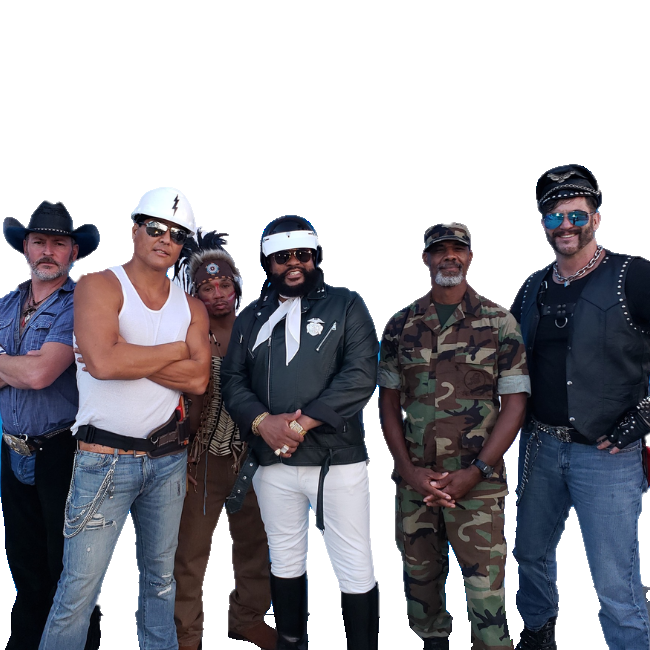About
Village People is one of the most iconic music groups in the world. Their music has become part of the international songbook. The group’s hits are featured in dozens of major motion pictures, on Broadway, in commercials and in “Village People Party” slot machines. Of course, Y.M.C.A (along with its dance) is played at almost every party, wedding, bar mitzvah, and sporting event in the universe.
Village People
It began in 1977 when producer Jacques Morali and his partner Henri Belolo, known collectively as Can’t Stop
Productions, were recording a new album for their hit group the Ritchie Family, called African Queen and needed
background singers. Horace Ott, the arranger/conductor who was working with them, suggested Victor Willis, a
singer he was recording who also was performing in the Broadway musical The Wiz. After Willis completed
background on the album, Morali approached him about another musical project he and Belolo were planning
which turned out to be Village People.
“I had a dream that you sang lead vocals on an album I produced, and it went very, very big,” Morali told Willis. “I
have four tracks. I can’t pay you much right now but if you agree, I’ll make you a star.” Willis agreed and the rest is
history.
Those initial four tracks, San Francisco (You’ve Got Me), In Hollywood (Everyone’s a Star), Fire Island, and Village
People were recorded by Willis with professional background singers and released as the debut album Village
People in 1977. The album quickly climbed to the top of the dance charts and became an international hit.
Demand for the “Village People” to appear in concert and on television shows like American Bandstand and Merv
Griffin was great. The only problem … “Village People” was Victor Willis! So Morali, Belolo and Willis had to put
together an actual group … and quick. Morali and Belolo had already met Felipe Rose who dressed as a Native
American. They recruited him. Willis brought in Alex Briley, who he’d previously worked with in a musical.
The quickly assembled original lineup appeared with Victor on American Bandstand was Mark Mussler
(Construction Worker), David Forrest (Cowboy), Lee Mouton (Leatherman) and Peter Whitehead (nondescript).
After that appearance, an ad was placed in a trade paper for ‘permanent’ members which read: Macho Types
Wanted for World-Famous Disco Group — Must Dance and Have a Moustache. Randy Jones, Glenn Hughes and
David Hodo answered the call.
Casablanca Records and Filmworks, the group’s label, got behind their second album Macho Man with full
promotion and marketing. Village People became an international phenomenon and quickly followed with their
third album, the double-platinum Cruisin (which featured the blockbuster Y.M.C.A.). They embarked on a
worldwide tour in 1979 to coincide with the release of their fourth album, Go West. The group has received many
honors and awards, including the American Music Award for Favorite Musical Group, a star on the Hollywood
Walk of Fame, and was featured on the cover of Rolling Stone.
After Willis exited in late 1979, several singers took over as lead singer of the group, including Ray Stephens, Miles
Jaye and Raymond Simpson (who served the longest). The group went on to star in the 1980 movie Can’t Stop the
Music. Over the years, various renditions of the group have consistently toured the world along with original
members Felipe Rose and Alex Briley including Ray Simpson, Jeff Olson (cowboy), Eric Anzalone (Biker), Mark Lee
(Construction Worker), Bill Whitefield (Construction Worker), and James Newman (Cowboy).
With hits like San Francisco/In Hollywood, Macho Man, Y.M.C.A., In the Navy and Go West, the group has sold
more than 100 million records worldwide and continues to break records. In 2004 BMI recognized Y.M.C.A. as
exceeding one million airplays. In 2017, Y.M.C.A. made UK’s Official Millionaires Chart – songs that have reached 1
million in combined sales/streams.
For the 40th anniversary of the group, Victor Willis is back at the helm. Backed by a live band, Village People
continues to thrill concert-goers around the world, as they did back in the day.




